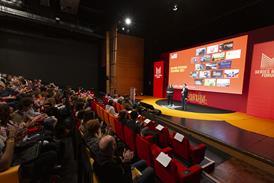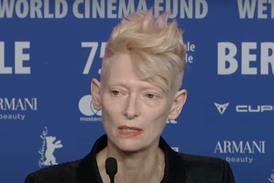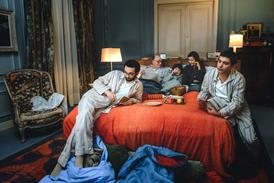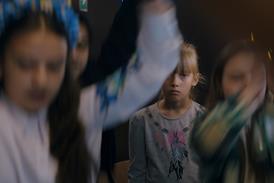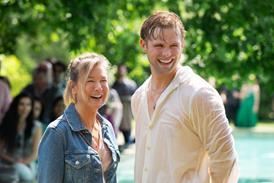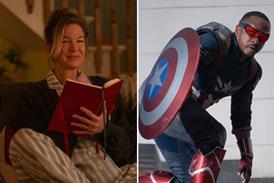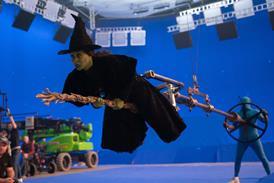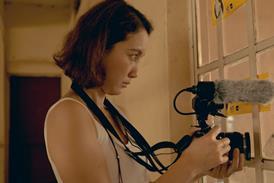Golshifteh Farahani plays a literary professor trying to stem the tide of repression in revolutionary Iran
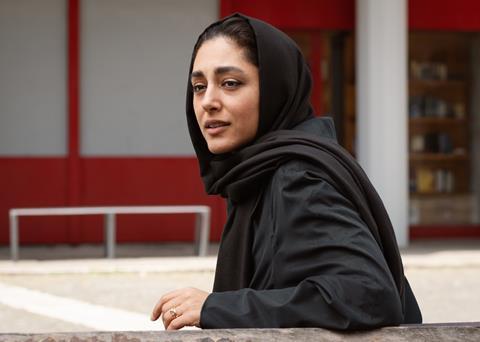
Dir: Eran Riklis. Israel/Italy. 2024. 118mins
The bestselling autobiographical book by Iranian author and literature professor Azar Nafisi is adapted into this timely but cautiously by-the-numbers drama about feminism and intellectual resistance in the face of a repressive regime. Directed by Israeli filmmaker Eran Riklis (The Lemon Tree, The Syrian Bride) and filmed in Italy doubling for Iran, this is a stirring, if conventionally-made story of courage and curiosity in the face of oppression.
The somewhat workmanlike approach may not be an issue for fans of Nafisi’s 2003 memoir
The film tells Azar’s (Golshifteh Farahani) story: how she and her husband Bijan (Arash Marandi) moved back to revolutionary Iran in 1979, full of hope for the future. But when the tightening restrictions of the Islamic Republic made it impossible for Azar to continue as a professor of English literature, she was forced to give private classes in her home to a group of keen female students. Like the novel, the film adopts a chapter structure, with each segment (apart from a scene-setting introduction) assigned a work of classic English-language literature - hence the titular reference to Nabakov’s ’Lolita’.
The somewhat workmanlike approach to the filmmaking may not be an issue for fans of Nafisi’s 2003 memoir, and Reading Lolita In Tehran is already benefitting from festival attention – it won the audience prize on its world premiere in Rome in October as well as a special jury nod. Screening in Tallinn prior to its release in co-production territory Italy this month, it will also benefit from the international profiles of both Farahani and rising star Zar Amir Ebrahimi (Holy Spider, Shayda, Tatami).
Part one, ’The Great Gatsby’, unfolds in 1980, with Azar engaging and challenging the minds of her students in the University of Tehran through the medium of F. Scott Fitzgerald. There are already signs that the climate for education is changing: a keen student, Bahri (Reza Diako) compliments her classes, but has prepared a list of “morally appropriate” writers that Azar might like to take into consideration (she doesn’t).
The more reactionary members of her class take issue with ’Gatsby’, and place the book on trial. It’s a summary kind of justice that plays out in the classroom (the book is guilty, of course). But this foreshadows the regime’s reaction to any ideas that it disagrees with: Azar is shocked and horrified when, following heated student protests, one of her 17-year-old female students is arrested, imprisoned and subsequently executed.
The second chapter, which focuses on ’Lolita’, takes place after Azar has left the university – her resistance to the mandated hijab is only part of the problem. She now hosts a small group of female students in her living room for debates that are awkwardly cut together with flashbacks of interrogations and domestic abuse suffered by the women. Nabakov’s book, the topic for the study group, provides a jumping-off point for deeper debates. “Are we Lolita?” says one woman.
It’s in this aspect that the film struggles to take off, both in this and in subsequent chapters dedicated to ’Daisy Miller’ and ’Pride And Prejudice’. When handled with energy and a lightness of touch, the impassioned exchange of ideas can make for gripping viewing: take Sarah Polley’s Women Talking for example, or Laurent Cantet’s The Class. Here, however, the points feel schematic and the debate is a little too obviously scripted to capture the mercurial magic of a real intellectual argument.
Throughout it all, though, Farahani is a powerful and charismatic presence. Her Azar is a strong woman whose face speaks volumes even when she chooses to stay silent. But when the attitudes and restrictions of the regime start to creep into her home life (her loving, liberal husband flinches at her friendship with a male former colleague), Azar realises that there is no future for her and her family in Iran.
Production company: Minerva Pictures, United King Films, Rosamont
International sales: WestEnd Films info@westendfilms.com
Producers: Marica Stocchi, Gianluca Curti, Moshe Edery, Santo Versace, Eran Riklis, Michael Sharfshtein
Screenplay: Marjorie David, from the book by Azar Nafisi
Cinematography: Helene Louvart
Production design: Tonino Zera
Editing: Arik Lahav-Leibovich
Music: Yonatan Riklis
Main cast: Golshifteh Farahani, Zar Amir Ebrahimi, Mina Kavani, Arash Marandi, Reza Diako




